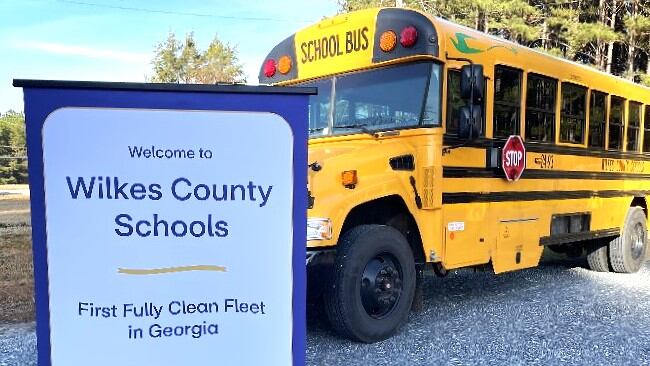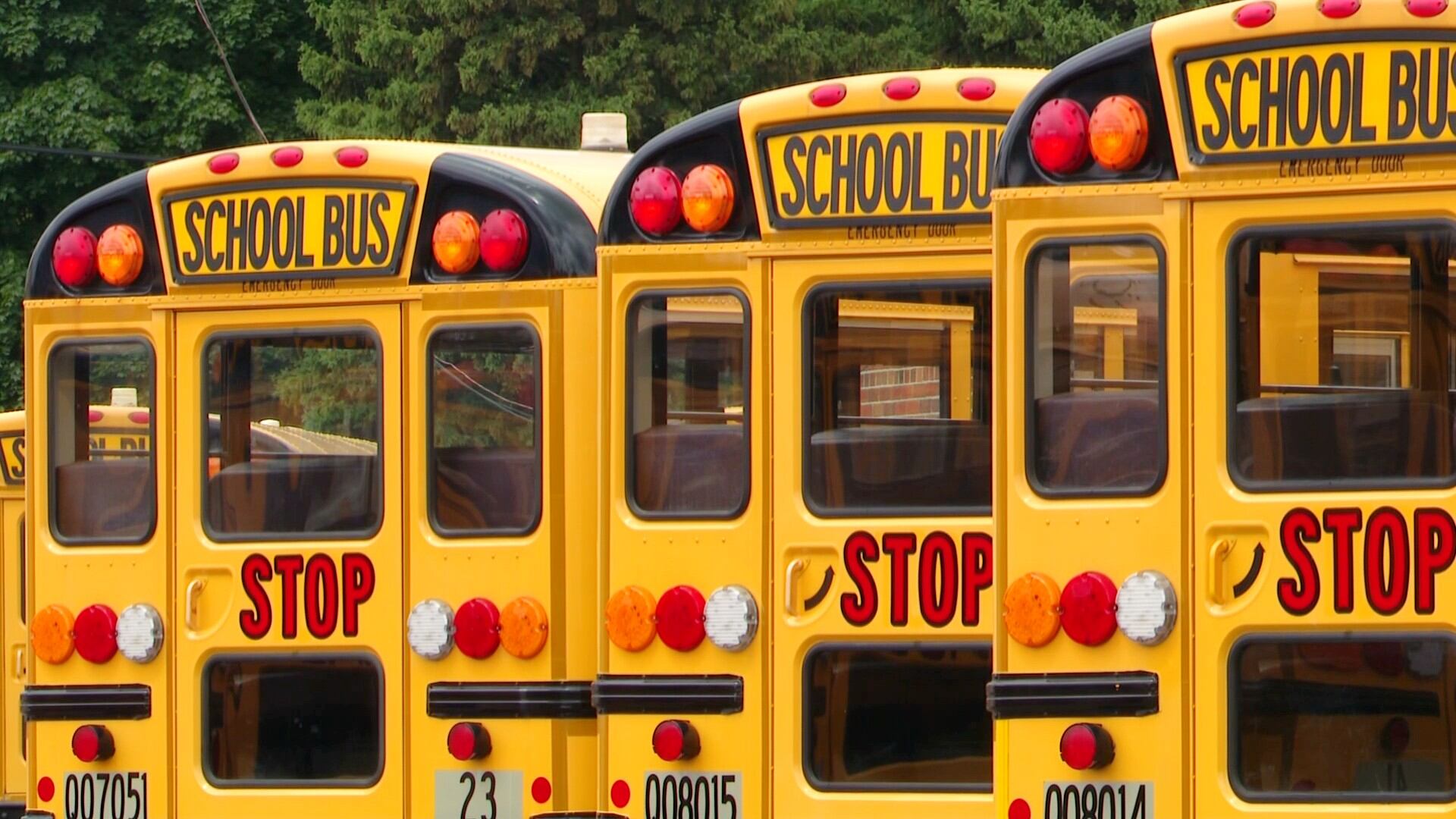Local districts roll out cellphone bans to meet S.C. mandate
AIKEN, S.C. (WRDW/WAGT) - When South Carolina students from kindergarten through high school return from their winter break, a big change will greet many of them.
Starting in January, every public school district in the state is required to start implementing a student cellphone ban, if they have not done so already.
School districts in Aiken and McCormick counties have approved their bans, as required by the state.
Earlier this year, lawmakers included a temporary law in the current state budget, called a proviso, that directs school districts to craft and enforce a student cellphone policy by the second half of the 2024-2025 school year.
Wilkes County 1st in Ga. to fully transition to electric school buses
The Wilkes County School District is the first in Georgia and one of the only school districts in the country to transition to a fully clean school bus fleet.

Some local counties have already put their own policies in place.
“Students will have more opportunities to engage in meaningful interactions, collaborate with their peers, and cultivate the essential skills necessary for success,” McCormick County school officials said.
You can find the McCormick County link to the policy on the district website, but here are a few key components:
- Electronic devices include, but are not limited to cellphones, smart watches, tablets and gaming devices.
- During the instructional day, devices must be powered off and out of sight. This includes from the time students arrive at school until after they leave campus.
- For car riders and students who drive, the devices must be turned off and out of view upon exiting the vehicle in the morning and remain turned off and placed out of view until returning to their vehicle at the end of the instructional day.
- Students on campus for extracurricular activities may use their devices on school property after 3:30 p.m.
School voucher program covers every Augusta student
Far more students than lawmakers expected – including every kid in Richmond County – ended up being eligible to seek vouchers.

The staff will follow these basic enforcement procedures when the policy is violated:
- First offense - The device will be confiscated and returned to a parent/legal guardian at the end of the school day after the parent/legal guardian signs the Telecommunication Use Agreement.
- Second offense - The device will be confiscated and returned to a parent/legal guardian at the end of the school day.
- Third offense- The device will be confiscated until the last day of the school year. A parent/legal guardian will schedule an appointment with the principal to retrieve the device.
Failure to surrender the device will result in the following consequences:
- First offense - Two days of out-of-school suspension.
- Second offense- two to three days of out-of-school suspension.
- Third offense- three to four days of out-of-school suspension.
Should parents need to get in touch with their child during the instructional day, they can the front office of their child’s school.
In Aiken, the ban was approved last week at a meeting where the school board also scheduled sweeping changes for thousands of elementary, middle and high schoolers.
Highlights of Aiken County’s policy:
- Middle and high school students with personal devices at school must keep them turned off and placed out of sight.
- Personal devices will not be allowed to be powered on and used at any time during the school day, which also includes lunch and other non-instructional times.
- Wearable technology that connects to a cellphone or other devices will not be able to be worn during the school day.
To view the full policy, visit the Aiken County Public Schools website.
Some school districts might opt for even stricter measures than the state’s model or put their own restrictions on students having their phones on buses or at after-school activities.
They are also allowed to decide what the consequences are for students who break the rules.
“We’ve encouraged districts all along to try to look at policies that remove the phone from the situation and not the student from the classroom,” state Superintendent Ellen Weaver said.
Districts that fail to adopt and adhere to a local cellphone policy could put their state funding at risk.
Weaver said the Department of Education will be in communication with districts and teachers to ensure these policies are being enforced.
Copyright 2024 WRDW/WAGT. All rights reserved.














